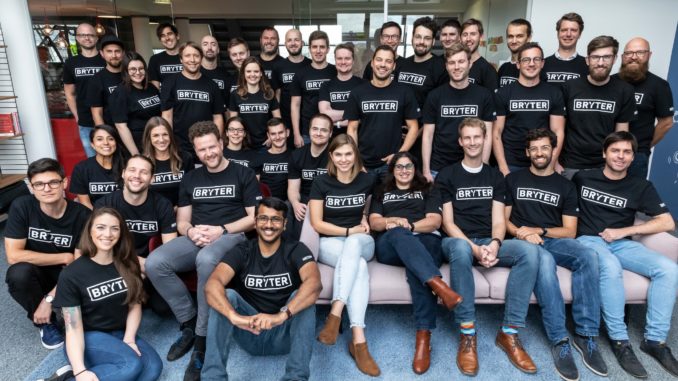
The Berlin/London based no-code automation company, BRYTER, has launched its BRYTER Open program. The program allows academics, NGOs, and individuals to use a community version of the platform, entirely free of charge. Interested teams and individuals can apply here.
While the BRYTER platform is used predominantly by enterprise business customers, the BRYTER Open project allows individuals, academics and those working in NGOs to test the platform and build applications that they always dreamed of.
A number of academic institutions across the globe have already signed up to BRYTER Open, including teams and students from Yale Law School, University of Cambridge, Kings College, Bucerius Law School, European Business School Faculty of Law and Frankfurt University. At the University of York and at Göttingen University, Master Programs are running on BRYTER and incorporate the technology in the course curriculum.
BRYTER has seen a lot of success lately. From its launch two years ago, it has welcomed numerous law firms and corporate departments as customers with more than 2,000 applications and workflows having now been published on the platform. Some of the recent projects involve the handling of COVID-19 loans through automated credit check and compliance assessments by KPMG Law or ‘Rule Keeper’ a suite of compliance, tax and data protection solutions developed by PwC Legal for its clients.
The most important aspect of the platform is that it combines enterprise-grade functionalities and setup with a high degree of intuitiveness and usability: users do not need to have any coding skills and can build digital applications for legal and compliance assessment within hours. This is especially helpful for law and consulting firms that are delivering digital solutions to their clients as much as it is for the corporate legal and compliance departments that are now able to distribute knowledge across the company more easily.
As an enterprise solution, the automation platform has been a breath of fresh air for corporate users, who have been seamlessly onboarded and received dedicated support for using and building modules. But now, BRYTER opens up to the academic and NGO world.

Why? For a number of good reasons:
BRYTER’s vision is to enable experts to easily deliver know-how and to bridge the IT skills gap to help organizations benefit from digital applications. This extends to a philosophy of facilitating education in technology and ultimately, access to justice.
These two goals have been an inherent part of BRYTER’s culture all along, sponsoring numerous hackathons and NGO projects like the NGO European Lawyers in Lesvos initiative since 2019. So, it was an obvious next step to give full access to the platform.
Michael Grupp, founder and CEO of BRYTER, explains: ‘We have already seen how our technology can be extremely helpful in more areas, especially for educational and social purposes. We had always planned to give access to the BRYTER platform for special projects and to leverage its full potential – but we had to put our focus on development and onboarding of our corporate customers first. After successfully launching BRYTER.
‘We had been repeatedly asked by more than 50 university teams to provide them with access. Now, we have decided it is finally time. In addition to fueling innovative solutions in these important sectors, we also hope to benefit from user feedback, feature inspiration and more people understanding the full potential of BRYTER.’
For further information, please reach out to BRYTER and the BRYTER Open team.
Link to BRYTER Open
Link to Registration

[ Artificial Lawyer is proud to bring you this sponsored article by BRYTER. ]